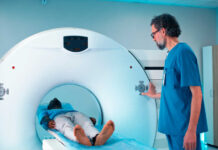
Men with ADHD face significantly higher risks of criminal involvement, particularly when alcohol use disorder complicates their condition, according to new research.
At a Glance
- Men with ADHD are four times more likely to be convicted of violent crimes compared to those without the condition
- Alcohol use disorder significantly increases criminal behavior risk in men with ADHD
- ADHD medication can substantially reduce the risk of criminal behavior
- Symptoms like impulsivity and inattention directly contribute to criminogenic thinking patterns
- Screening for both ADHD and comorbidities could help reduce judicial system involvement
The Complex Relationship Between ADHD and Crime
The connection between Attention Deficit Hyperactivity Disorder (ADHD) and criminal behavior has gained increasing attention from researchers in recent years. While ADHD alone doesn’t predetermine criminal tendencies, a significant body of evidence now points to an elevated risk, especially when other factors come into play. A comprehensive Swedish study utilizing nationwide registers found that individuals with ADHD are four times more likely to be convicted of a violent crime and twice as likely to commit a nonviolent crime compared to those without the condition.
The research indicates that ADHD symptoms directly impact decision-making processes that can lead to criminal involvement. Core symptoms like impulsivity, which causes individuals to act without fully considering consequences, and inattention, which impairs focus on long-term outcomes, create vulnerability to situations that may result in legal troubles. These neurological differences don’t excuse criminal behavior but provide important context for understanding risk factors and developing effective interventions.
The Amplifying Effect of Alcohol Use Disorder
Recent findings published in Medscape Medical News reveal that when ADHD co-occurs with alcohol use disorder, the risk of criminal behavior increases substantially. This combination appears particularly problematic for men. The disinhibiting effects of alcohol can exacerbate existing ADHD symptoms like impulsivity and poor self-regulation, creating a dangerous synergy that elevates the likelihood of criminal actions.
The relationship appears bi-directional, with ADHD increasing vulnerability to substance use disorders while alcohol consumption worsens ADHD symptom management. Researchers found that male sex and alcohol use disorder were significant independent predictors of criminal behavior in their analysis. This underscores the importance of addressing both conditions simultaneously rather than treating them as separate issues.
How ADHD Symptoms Influence Criminal Thinking
Research published in the National Library of Medicine has identified specific connections between ADHD symptoms and criminogenic thought patterns. Inattention symptoms strongly correlate with “criminogenic cognitions” – thought patterns that support criminal behavior – particularly in areas called cutoff (dismissing consequences), cognitive indolence (mental shortcuts), and discontinuity (inconsistent thinking). These thinking styles substantially increase the likelihood of engaging in criminal behavior.
Impulsivity, another core ADHD symptom, directly relates to what researchers call “power orientation” – a belief system that views the world through dominance and control dynamics. Studies have found that age, gender, inattention/memory problems, and impulsivity/emotional lability all serve as predictors of these criminogenic thought patterns. This helps explain why ADHD is significantly overrepresented in prison populations, with estimates suggesting that 25-45% of inmates have ADHD, compared to 4-5% in the general population.
Prevention and Treatment Approaches
The encouraging news comes from studies showing that proper ADHD treatment significantly reduces criminal behavior risk. Research indicates that individuals with ADHD who receive appropriate medication demonstrate substantially lower conviction rates compared to those who remain unmedicated. This finding has profound implications for both healthcare and criminal justice systems, suggesting that proper ADHD management could serve as an effective crime prevention strategy.
Experts now advocate for comprehensive screening programs to identify ADHD and comorbid conditions like alcohol use disorder, particularly in at-risk populations. Early intervention programs for juveniles with ADHD symptoms could potentially divert them from criminal pathways. For those already in correctional facilities, ADHD-specific treatment programs might reduce recidivism rates. The evidence strongly suggests that addressing these underlying conditions represents a more effective approach than punishment alone.
Sources:
https://www.sciencedirect.com/science/article/abs/pii/S0160252717302339
https://www.scirp.org/journal/paperinformation?paperid=115106


















